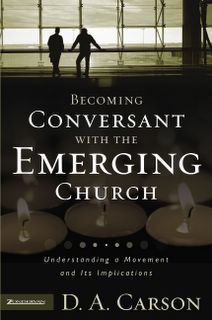

Branded from birth
Marketers use cartoon characters and familiar scents to build brand loyalty from Day One
BY BARBARA F. MELTZ
BOSTON GLOBE
Vanilla-scented diapers? Teddy bears that smell good enough to eat? Baby clothes infused with fragrance?
Expect to see, er, smell, them soon at your favorite retailer. Or maybe it will be so subtle that you don't notice. Marketers are betting your baby will, though.
The corporate world is always looking for the next big market, and right now babies are it.
With marketing research concluding that young children are up to 350 percent more responsive to the five senses than adults, and especially to smell, marketers are hoping to capture future consumers by putting signature smells in ordinary baby products that will later evoke positive memories. For a toy manufacturer, for instance, a scent on a stuffed animal could translate to a 7-year-old's preference for that brand of toys just because the toy has the scent.
"You won't be able to argue with your brain," says branding specialist Martin Lindstrom of Norway, who advises Fortune 500 companies.
Or with your child. Marketers are counting on that.
That marketers want our children is not new. That they are after even our babies and toddlers is an increasing challenge for parents and a concern to child-development specialists.
Try to find a disposable diaper, even for a newborn, that doesn't have a media character on it, from Barney and Blues Clues (Luvs), to Mickey Mouse, Finding Nemo (Huggies) or Sesame Street (Pampers). The characters aren't just on the strip along the top of the diaper, they are front and center, big and bold. Right there where a seated 6-month-old's drool dribbles.
That's no coincidence.
Long before "drool factor" became a hip way to refer to an item advertisers hoped consumers would covet, it had a more literal meaning. Ever notice how a 5- or 6-month-old sometimes watches to see where his drool lands? Discovering that was an "aha!" moment for former Texas A&M marketing professor James McNeal. He reasoned that if the drool dripped to a diaper or a bib imprinted with an image of a character that's linked to a brand, and if the baby sees the logo repeatedly...
Voila! Brand recognition in the crib! With cradle-to-grave brand loyalty worth an estimated $100,000 per consumer, babies are "the future market for ALL goods and services," e-mails McNeal from China, where he's researching youth consumerism. He is author of "Kids as Customers: A Handbook of Marketing to Children" (Free Press).
McNeal came up with the drool factor in 1993, but the industry was slower on the uptake than he expected. Only recently, he e-mails, "has it finally dipped down to 1-year-olds."
If you're wondering, "What's the big deal? We're just talking babies, for heaven's sake," McNeal will tell you: "Consumer behavior patterns begin officially at 16 weeks of age."
Child-development specialists might not pinpoint it so exactly, but few would argue the point. Research shows that the part of the brain responsible for cognitive learning comes on line gradually, over several years, but the right brain, responsible for emotions and relationships, is up and running from birth.
Here's how it can work to a marketer's advantage: The more an image is repeated on diapers, toys, clothes and food, the more familiar it becomes. What's familiar conveys a sense of comfort and security. That leads to an emotional attachment.
"Deep, subconscious connections are made," says psychologist Susan Linn of Judge Baker's Children Center, author of "Consuming Kids: The Hostile Takeover of Childhood" (The New Press).
Babies and toddlers are most vulnerable. Cognitively unable to filter, they also take in more than we realize. What's most visually dramatic tends to be what children notice first, says Dan S. Acuff, a marketing insider turned critic. But "the whole gestalt also imprints. If a brand is there, it's recorded at some level." He is co-author of "Kidnapped: How Irresponsible Marketers are Stealing the Minds of Your Children" (Dearborn Books), just out this month.
Marketers first recognized the value of visual repetition. Now they're on to sound and smell. A pacifier with a music chip? "Don't laugh," says Lindstrom. Smell is even more powerful "because it goes straight to the emotional register." Look for scented diapers on U.S. shelves within six months, he says. Expect a smell of vanilla to infuse your nursery not long thereafter.
Why vanilla? "Because the milk you are breast-feeding with has a twist of natural vanilla fragrance," says Lindstrom, who is author of "BRAND sense" (Free Press).
Boston College sociologist Juliet Schor doesn't tell parents to ban all branded items from the crib; as in so many arenas of parenting, moderation is key, she says. But extensive branding in a baby's life "socializes him into a world of corporate values. A toddler grows up thinking McDonald's is good because it gives her things she likes. But McDonald's isn't healthy food, it doesn't pay decent wages," says Schor, author of "Born to Buy" (Scribner). "By branding kids younger and younger, corporations count on creating the next generation to be more friendly to them. To the extent we are branding babies, we are bringing them up in a world that makes it harder for them to be critical of what they buy."
To be sure, you can find unbranded diapers, you can find unbranded anything. But it takes more effort and, often, more money.
Meanwhile, parents aren't as powerless as we may think:
• Resist screens of all kinds. Since the American Academy of Pediatrics recommends no screen time for children younger than 2, marketers have become more resourceful. The latest? Verizon offers "mobi-toons" on your cell: Pass the cellphone to your crying baby or toddler while you're driving and, for $15 a month, you have unlimited access to famililar, calming "Sesame Street" characters. There's a hidden cost, though. Linn cautions that children who learn to turn to a screen for comfort sooner or later are exposed to logos, branding, and commercials that further suck them into a materialistic culture.
• Buy generic. A baby will find as much fascination in an unbranded crib mirror as one with Elmo on the frame, as much comfort in any cuddly stuffed animal as the plush version of a beloved TV character. When a toy is generic and open-ended rather than linked to a character, there's more opportunity for creativity, which leads to more learning. What's more, Linn says character toys lead to consumerism because they become boring, encouraging a child to want the next toy.
• Acknowledge, don't purchase. You're at the grocery store and your 16-month-old gets excited as you pass a food item with her favorite character on it. If you say "No!" and try to move on, you're into a power struggle that marketers count on parents losing. Instead, "Diffuse the moment by thinking of this as a request for acknowledgment, not a demand for purchase. It's the fact of recognition that makes it pleasurable to them," says early childhood educator Ruth Anne Hammond: "'Look at that! You recognize Elmo!"' Hammond is director of the infant-toddler-parent program at Pacific Oaks College in Pasadena.
McNeal downplays the industry's role in creating materialistic children. "The danger is in what the parents do. All of it is funneled through parents in one way or another. They introduce the brands, the TV, the marketplace to their kids, starting at birth."
After all, he says, many parents are addicted to brands, too.
Contact Barbara Meltz at meltzglobe.com.










